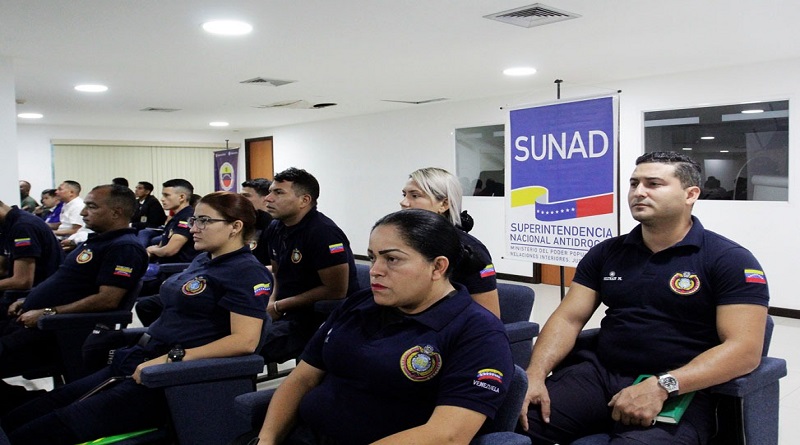The senator and leader of Cabildo Abierto, General ( R ) Guido Manini Ríos, highlighted the contributions of his sector to the social security reform. He affirmed that the project that entered Parliament is better than the preliminary project presented by the Executive Power.
“We believe that it contemplates many aspects that we were interested in contemplating,” he indicated.
Manini Ríos recalled that he sent President Luis Lacalle Pou and the team that was drafting the project, “a few points that we understood needed to be corrected from the draft and some of them were essential for us. We all have the conviction that it is necessary to reform the social security system”, he underlined.
So far everything is normal, or within what is foreseeable in a government coalition, but regarding the position of Cabildo Abierto in the parliamentary debate, Manini Ríos had already said that “there are some points that we are going to discuss”, although he avoided giving details about what they were so as not to generate expectations. Everything here is about discussing, talking, listening. Now, a stage is opening in which dozens of delegations from the different groups affected by the proposed law will attend Parliament, ”he stated. You also have to listen to the people. The parliamentary debate is for that, to listen and improve what can be improved, and that is what we are going to try to do”, he pointed out. There is an issue that institutionally and legally did not divide the Uruguayans is that of the expiration of the State’s punitive claim, “he said at the time in a statement.
The controversy that does not enter the Box
In turn, and in one of the issues that arouses the most controversy between the ruling party and the opposition, and within the very multicolored coalition, such as the Caja Militar, the Military Center issued a statement at the time in which it expresses “its deep uneasiness” due to the declarations of the Minister of Defense, Javier García, who at the luncheon of the Association of Marketing Leaders (ADM) on September 28, on the Open Cabildo bill that would grant house arrest to people over 65 years of age. For the Center, there are soldiers and police officers who find themselves in this situation, “deprived of liberty in perpetuity, given their age and the sentences imposed on them.”
“The refusal of the minister to support and even consider said bill is argued that the possibility of house arrest is an issue that “divides Uruguayans.” The argument of the minister, who notoriously referred to the situation of soldiers and police officers currently deprived of their liberty, does not adjust to the reality of the historical or legal future of the Republic”, affirms the Military Center.
“The events that occurred more than 50 years ago had, as is public knowledge, several stages, however, the legal/political dynamics that framed them within the conception of the rule of law and the republican democratic form of government cannot be misrepresented,” he adds. . The Military Center refers to the Expiration Law as “necessary for the full return to democratic life of the country”, and recalls that the law was approved by the democratically elected Parliament, and submitted to a referendum in 1989 and a plebiscite in 2009, and which was ratified in both instances of popular consultation. In the statement, it is also stated that in 2011 the Parliament decided “by a circumstantial majority to twist the citizen’s will expressed on two occasions.” “There is an issue that did not institutionally and legally divide Uruguayans, which is the expiration of the State’s punitive claim,” he says. The Military Center regrets what it considers Minister García’s intervention in ADM to be unfortunate, which “we perceive as a wrong subjective opinion.” “We hope that the Minister of National Defense, in an act of greatness, seeks in his future speeches to promote an effective national reconciliation,” he concludes.
Criticism for government slowness
After more than two and a half years of government, the differences within the multicolored coalition on certain issues have been made public on more than one occasion. This “would have been avoided” if there had been a negotiation area made up of all the partners, according to Manini.
However, he regretted that President Luis Lacalle Pou had “shown” that he had no interest in forming that space. On the other hand, the leader of Cabildo Abierto affirmed that the security problem is far from being resolved and emphasized the importance of addressing the difficulties that MSMEs are going through.
In this regard, the leader of Cabildo Abierto said: “We understand that a space of this type can be good for a more refined coordination in the treatment of major issues. Work continues with personal meetings between the president and the leaders of the different parties. Every time I have a topic to discuss with him, I go and talk about it, but it is true that this area has not been created and that sometimes leads to a lack of coordination in certain measures or activities, or to frictions that come to light or differences in approaches, which could perfectly have been ironed out before being presented. -Sometimes there are differences regarding a project or negotiation. There have been very notorious cases, such as the issue of the port, the airports, where if there had been a conversation between the leaders of the parties in an appropriate setting, certain noises would have been avoided when they became public with the fait accompli; Some things could even have been improved or done differently. We would have liked these negotiations to be handled differently; we did not agree with what was discussed, and those discrepancies could have been avoided had there been a proper framework,” he said. Then the senator lobbyist on the possibility that the government generate a dialogue table, reflected: “I have not raised it, but I know that the Colorado Party has done so. Undoubtedly, the president has no interest in forming a dialogue table at the highest level between the coalition partners, that is what he has shown. The area that particularly worries us is security, where we have raised the need to bring the police closer to the neighbor, to reinforce the neighborhood and campaign police stations. This does not mean more police officers, but a redeployment.
During the 15 years of the Frente Amplio government, the police have been withdrawing from contact with the people. I came to see campaign police stations with a sign that said: “We open on that day.” That emptying that has occurred must be reversed if we want to change reality,” said Guido Manini Ríos.
Clearly there are differences between the National Party and the Cabildo Abierto, it is normal that they happen when an alliance is produced with an electoral purpose and not because of affinities, in some issues they are antagonistic, in others there are similarities, the issue is to know how much erosion these can cause divergences in the proper functioning of the executive, in parliamentary agreements and in governance itself.
Clearly, Manini’s discontent with some of the president’s “no ones” is evident, which leads us to ask ourselves, to what extent they are, and above all, if they will continue to be partners.
John Prandi







